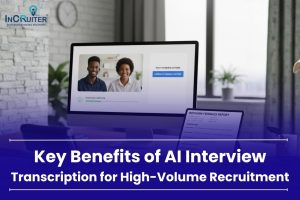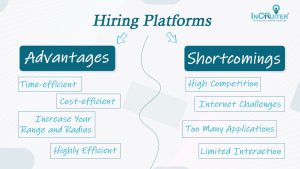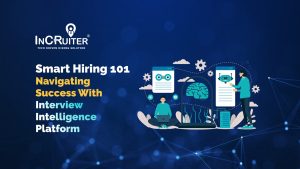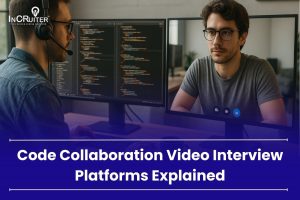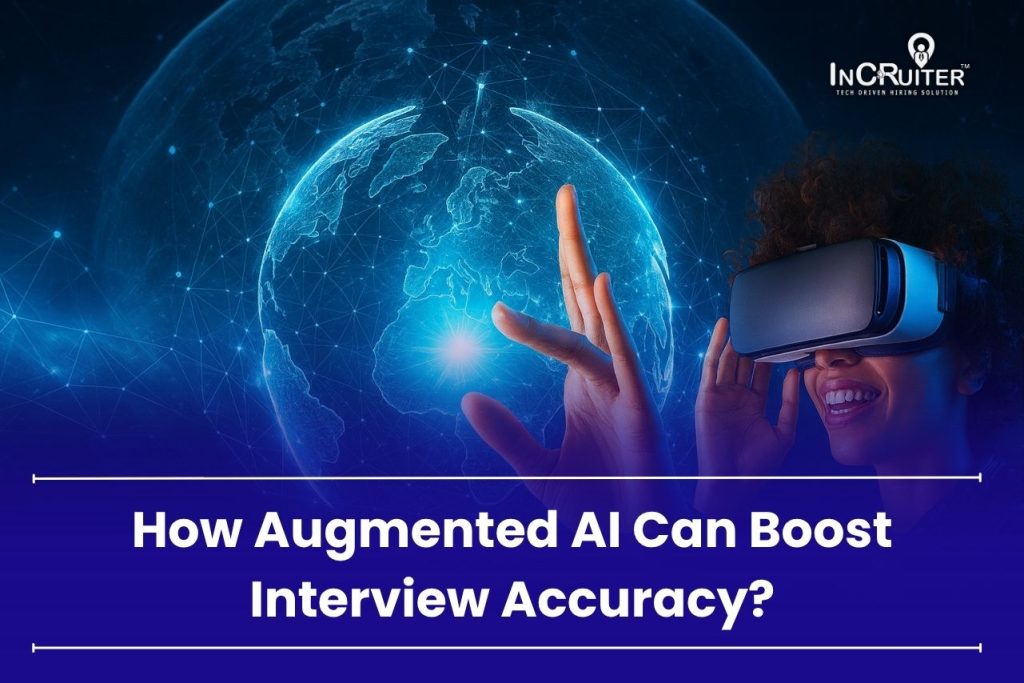
One interviewer digs deep, another just chats. Some forget to take notes. Feedback comes in late, or not at all. Meanwhile, strong candidates drop off without a trace. These are everyday issues in real hiring rooms. They slow things down and create unfair outcomes. This is where Augmented AI interview technology steps in, not to take over, but to quietly support and simplify. It brings structure without killing the human touch.
In this blog, we’ll talk about how it makes interviews more accurate, consistent, and actually helpful for everyone involved.
Also Read: AI Resume Checker
The Problem with Traditional Interviews
Inconsistencies in Interviewer Evaluation Methods
Different interviewers often follow their own evaluation styles, making it hard to compare candidates fairly. Without a structured interview process, scoring varies widely. This inconsistency in candidate assessment reduces interview accuracy and makes data analysis unreliable. Recruiters struggle to make informed hiring decisions without consistent interview performance metrics or a standardized evaluation framework.
Subjectivity Leading to Biased Hiring Outcomes
Manual interviews rely heavily on human perception, which often brings unconscious bias into hiring decisions. Factors like tone, accent, or educational background can unfairly influence evaluations. This lack of objective criteria reduces diversity and impacts the fairness of the talent acquisition process, especially when interview questions are not behavior-based or job role aligned.
Delayed Feedback Slows Down Hiring Decisions
In traditional recruitment workflows, feedback is shared through scattered notes or verbal exchanges. This delay in feedback collection and consolidation leads to missed opportunities as top candidates accept other offers. Hiring managers often face confusion due to incomplete interview records, affecting the quality and speed of the recruitment lifecycle in growing companies.
Interviewer Fatigue Reduces Focus and Fairness
Interviewing back-to-back candidates without rest drains mental energy and reduces focus. Interviewer fatigue often leads to rushed evaluations or overlooked red flags. This impacts candidate experience and interviewer performance. In high-volume hiring scenarios, it becomes difficult to maintain consistent quality, making the overall interview process less efficient and more error-prone.
What is Augmented AI in Interviews?
Augmented AI in interviews refers to an intelligent computer algorithm that assists human interviewers by providing real-time support, structure, and insights. Unlike fully automated solutions, it enhances human decision-making rather than replacing it. These AI-powered video interview tools improve consistency, reduce bias, and ensure fair evaluations across candidates, making interview processes more scalable, accurate, and efficient without losing human judgment.
Key Ways Augmented AI Improves Interview Accuracy
Automatically shortlist top candidate profiles
Augmented AI screens thousands of resumes using skill-matching logic, past performance indicators, and job-fit scoring. It prioritises candidates who match role-specific benchmarks, reducing irrelevant profiles reaching the panel. This enables focused interviews with qualified candidates only, saving interviewer bandwidth and boosting overall hiring accuracy by filtering beyond keyword stuffing or decorative resumes.
Analyses job description to generate relevant questions
AI reads job descriptions to understand key skills, tools, and deliverables expected in the role. It generates domain-relevant, experience-level aligned questions. For a product analyst role, it may suggest SQL-based problem-solving and data interpretation questions instead of basic theory. This precision ensures interviews assess real competencies needed for success in that exact position.
Automate the interview scheduling and rescheduling
AI connects the Google and Microsoft calendars of panelists and candidates to identify mutual availability. It sends automated interview invites, follows up with reminders, and handles last-minute changes through WhatsApp, SMS, or automated IVR calls. If someone cancels, it instantly reallocates slots, preventing human delays. This removes back-and-forth emailing, improves candidate experience, and ensures interviews happen on time.
Provide Real-Time Prompts to Interview panels
During interviews, AI provides question-specific prompts, probing tips, and live cues based on candidate responses. If a candidate gives vague answers, the AI may suggest clarifying queries. It ensures the panel covers all critical areas like technical, soft skills, project depth, and tool proficiency. This keeps the interview flow sharp and balanced throughout the session.
Captures the whole Interview for further review
AI records video, audio, transcripts, and interviewer notes without requiring manual setup. Hiring managers can later revisit interviews to resolve scoring gaps or re-evaluate borderline candidates. In multi-panel settings, it helps decision-makers see candidate reactions and explanations firsthand, reducing dependence on memory or incomplete feedback forms for final selection.
Ensure interview authenticity via online proctoring
AI Proctoring tool track eye movement, browser activity, background noise, and identity matches during interviews. If a candidate gets coaching or uses external tools, AI flags it instantly. It secures the hiring process from impersonation and cheating, especially in remote technical roles, maintaining fairness without manual supervision or third-party monitoring services.
Generates Post-Interview Feedback Reports
After each session, AI generates a structured report capturing candidate performance, question-wise scoring, behavioral traits, and panel comments. It identifies evaluation mismatches or missing feedback and nudges interviewers to complete inputs. These reports help hiring managers make faster, informed decisions and ensure transparency for future reference during the offer or rejection stages.
Also read: Resume Checker
Final Thoughts
Interview accuracy is no longer a luxury; it is a necessity for fast, fair, and effective hiring. Augmented AI brings structure, removes guesswork, and empowers interviewers to focus on what matters: making the right hiring call. From pre-interview planning to post-interview analysis, it ensures consistency without losing the human touch. Companies aiming to scale without compromising quality should embrace this shift. To experience accurate, AI-augmented interviews in action, book a demo with InCruiter today.
Ready to Transform Your Hiring Process?
Discover how our AI-powered interview platform can streamline your recruitment and find the best candidates faster.

